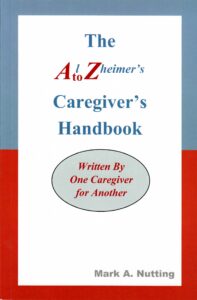Are you a care partner for your loved one who has dementia? This is an incredibly difficult time for all of us, but only you know how challenging this time of social distancing has been for you and your loved one. Adult Day programs are closed, and we do not know when they will open. Although there are home care agencies who are equipped and educated to provide care in the home, you may resist having anyone enter your home. This is due to fear of exposing you and your loved one to COVID-19. This crisis has spawned increased fear, anxiety, concern, worry, withdrawal, appetite changes, sleep disturbances, and social isolation for older adults; especially for those living with dementia. I want to provide some thoughts and ideas for you and your loved one to enhance the quality of your day.
If your loved one can communicate their needs and wants, you should always provide the opportunity to do so with patience and understanding. If your loved one is challenged to communicate or make decisions, do your best to listen and observe non-verbal communication. You should seek to determine the feelings and unmet needs underlying their challenges to communicate. This will allow you to acknowledge and empathize how they are feeling. Making these first steps in establishing good communication allows you to move towards redirecting their negative feelings or actions towards something positive. Never argue, correct, criticize, or demand.
I had a spousal care partner recently explain to me “my wife asks to go home, and she looks at me and asks for her husband… I don’t want to reinforce her delusion, so I tell her she is home and I am her husband.” I asked him, “How does she respond to that?” He reported, “not good… she seems frustrated, angry, cries, and continues to ask the same thing.” I guessed this was something they were experiencing from her frequently during the later part of the day. He confirmed this assumption. This period of day promotes what we call “Sundown Syndrome.” The person with dementia may experience heightened symptoms during this time. In this example, his wife is seeking reassurance; sense of belonging; sense of comfort and security; someone and someplace familiar as her confusion, memory, and recognition are impaired. Our natural response would be to make reality statements to fix her delusional thinking; however, we must understand that in doing this we only make her feel worse. I coached him with statements of validation, empathy, and fiblet to successfully enter her reality which would result in a much more positive outcome. This will undoubtedly provide her with the comfort and security she is needing at that moment. It takes practice; however, after he experienced the positive consequences, he understood that fighting her delusional thinking was creating hardship for his wife.
I strongly believe following each day with structure and routine will prove to be beneficial. Things to fill-up your day’s schedule should routinely include the following: wake-time; meal-times; physical activity, including outdoor walks, ageless grace, online fitness; cognitive activity, including puzzles, trivia, brain-fit software; music, including playing preferred music, sing-a-long, dancing; house-hold chores, including folding laundry, cleaning, setting table, food prep, re-organizing, gardening; arts & crafts, including painting, adult coloring; and social connection, including virtual or phone calls with family and friends.
These must be individualized to meet the needs of the person living with dementia. You should take into consideration, the person’s preferences, choices, interests, abilities, talents, and mood. There are people living at home who are all at different stages of the disease process. If you are a care partner for a loved one living with dementia, turn off the news. No need to expose you and your loved one to trauma through inflated negative images and messages; not to mention, misinformation. Use the television for therapeutic engagement. You can show favorite movies, sit-coms, and musicals.
I highly suggest that there be a quiet time in a recliner chair or couch where you and your loved one can close your eyes and rest for about 45 minutes in the afternoon. This will re-energize you both for the later part of the day, thus reducing sundown symptoms. You want to avoid napping in bed. Bed should be for night-time sleep or if someone is ill. You want to avoid napping for a long length of time due to the disruption in one’s circadian rhythm which will encourage sleep disruption during the night.
Here are a few resources which may help you to engage, get support, and make connections.
Virtual Memory Cafes
COVID Caring Conversations
Ageless Grace Movement and Music
Brain Training
Pioneer Network
Silver Kite Online classes and performances
Arts and Minds
Time Slips
Virtual Tours
I am also available for private consultation for education and supportive counseling for any care partner struggling through their day with their loved one with dementia. Please contact Tammy to inquire.







